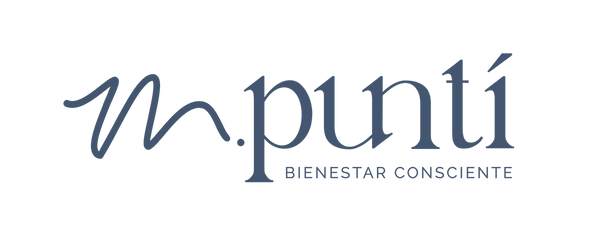|
The topic of cholesterol is always very controversial and there are all kinds of opinions.
Today I wanted to talk to you about different natural alternatives to statins, which are conventional cholesterol-lowering medications.
And why? Because many patients have reported short-term memory problems, fatigue, and muscle and joint pain as a result of taking this medication. Although it may seem like a harmless medication, it can have significant side effects, such as those affecting the heart:
-
Myopathy and muscle weakness : One of the main consequences of statin use is myopathy, which can lead to muscle weakness and pain. In severe cases, it can progress to rhabdomyolysis.
-
CoQ10 Depletion : Statins inhibit the enzyme HMG-CoA reductase, which is crucial not only for cholesterol synthesis but also for the production of CoQ10. CoQ10 is essential for energy production in heart and other muscle cells.
-
Fatigue and decreased energy : Decreased CoQ10 intake can lead to decreased cellular energy production, which can result in fatigue and decreased ability to exercise.
-
Chest pain (angina) : In some cases, decreased CoQ10 and the effect of statins on the heart muscle may contribute to symptoms such as chest pain.
So, I would say that it's one of the medications I hate the most, and I think there are many better alternatives, at least as a first line of treatment in cases of familial hypercholesterolemia in particular.
▶️ NIACIN
-
Reducing LDL (bad cholesterol) : Niacin may help reduce LDL cholesterol levels, although this is not its main benefit.
-
Increased HDL (good cholesterol) : One of the most significant effects of niacin is its ability to increase levels of HDL cholesterol, which helps transport cholesterol out of the arteries and back to the liver, where it is broken down and removed from the body.
-
Reduction of triglycerides : Niacin may also reduce levels of triglycerides, another type of fat in the blood that, at elevated levels, can increase the risk of cardiovascular disease.
-
Lowering Lipoprotein(a) : Niacin is one of the few therapies that can reduce levels of lipoprotein(a), an LDL-like particle that is associated with an increased risk of heart disease.
Dosage : The maximum recommended dose of niacin for cholesterol lowering is usually 2,000 mg (2 grams) daily when using the extended-release form (extended-release niacin or sustained-release niacin). For immediate-release niacin, the maximum dose may be as high as 3,000 mg (3 grams) daily. Be careful, you may experience some reddening and warming of the skin, known as "niacin flush." This effect may be uncomfortable but is usually harmless.
▶️ RED YEAST RICE
-
Cholesterol Reduction : Monacolin K works by inhibiting the HMG-CoA reductase enzyme, the same enzyme used by statins, which reduces cholesterol production in the liver. This can lead to a reduction in LDL ("bad") cholesterol and triglycerides.
-
Improved Lipid Profile : In addition to reducing LDL, some studies suggest that red yeast rice may slightly increase HDL ("good" cholesterol) levels.
-
Reduced Inflammation : Some compounds in red yeast rice have anti-inflammatory properties, which may contribute to cardiovascular health.
Dosage : The commonly recommended dose is 1200 mg to 2400 mg daily, divided into two doses (e.g., one 600 mg capsule twice daily). I recommend supplementing with Q10, 100 to 200 mg daily.
▶️ PROBIOTICS
Many probiotic strains can produce enzymes that break down bile salts in the gut. This forces the liver to use cholesterol from the blood to produce more bile salts, thereby lowering cholesterol levels. Furthermore, probiotics can ferment dietary fiber to produce short-chain fatty acids (SCFAs) such as acetate, propionate, and butyrate. These SCFAs can inhibit cholesterol synthesis in the liver. They also improve the health of the gut microbiome, which can influence lipid metabolism and reduce systemic inflammation, both of which may contribute to cholesterol reduction.
Finally, we know that some probiotic strains can reduce the absorption of dietary cholesterol in the intestine by incorporating it into their own cell membranes during growth. Here are some strains with scientific evidence:
- LeBoulardii Npro (Saccharomyces boulardii). Mechanism : Saccharomyces boulardii, a probiotic yeast, helps improve intestinal health and may influence the metabolism of fats and cholesterol in the intestine, thereby reducing cholesterol absorption.
- ButiBifidus Biota or Bifiselle (Bifidobacterium longum). Mechanism : Bifidobacterium longum may help reduce cholesterol levels by breaking down bile salts in the intestine. This forces the body to use more cholesterol to produce new bile salts, thereby reducing blood cholesterol levels.
- Visbiome (formerly VSL#3). Mechanism : Contains a mixture of several strains of probiotic bacteria, including Lactobacillus and Bifidobacterium. These bacteria can produce short-chain fatty acids during the fermentation of dietary fiber in the intestine, which may reduce cholesterol synthesis in the liver and cholesterol absorption in the intestine.
- Lactobacillus reuteri NCIMB 30242 (Cardioviva or Life Extension, Florassist ). Mechanism : This specific strain of Lactobacillus reuteri has demonstrated in clinical studies the ability to reduce LDL cholesterol levels. It is believed to do this by producing an enzyme called bile salt hydrolase, which breaks down bile salts and reduces cholesterol absorption.
|
|
Without a doubt, regular exercise, including cardio and strength training, good nutrition, and mental health will be the fundamental pillars when addressing dyslipidemia. However, I only advocate using drugs as a last resort, once all other options have been tried. There's no point in giving supplements or medications if we haven't addressed the root of our problems or built the foundations in the health priority pyramid.
Take care of yourselves... Have a great week! I hope you enjoyed this post.
Sincerely,
Maria
---
PERSONALIZED NUTRITION AND PSYCHONEUROIMMUNOLOGY ADVICE
📩 Contact us for questions and concerns at info@mpunti.es or WhatsApp +34 722 530 271
👉 You can book your first consultation by clicking here
|

